The Esteemed Gentleman Articles
Check-In With Confidence: Your Ultimate Guide To Hotel Etiquette
Whether you are staying at an all-inclusive resort in another country or a road-side motel just a few hours from home, you want your hotel experience to be a positive one. This includes practicing good hotel etiquette from the moment you step onto the property until you leave.
Hotel etiquette extends past using simple pleasantries while checking in or out; it includes keeping your room clean, respecting hotel property and patrons, adhering to the codes of conduct, tipping and more.
In this ultimate guide to hotel etiquette, we aim to cover a variety of situations and etiquettes you may encounter during your stay. If we missed anything, be sure to leave a comment or message us directly. On with the list:
Contact The Hotel Ahead Of Time To Confirm All The Details Regarding Your Stay
Be sure to contact the hotel ahead of time to confirm your stay, especially if you booked your room through a third-party website like Expedia or Trivago. Make a note of the person's name that you confirm your booking with.Although many hotels use programs to handle online bookings, the systems aren't always 100% reliable.
If you are booking through a third-party website, check your inbox for a confirmation email. Th ese emails will contain all the necessary information you need, including a confirmation number which you can use if there are any issues regarding your booking. Print this out in case of any technical challenges that may arise.
When contacting the hotel, be sure to confirm all the details noted in your confirmation email to ensure you get what you are paying for. Some hotels may be booked for a wedding or other large gathering and may have double booked your room.
If this happens, they will likely offer you a discounted rate, free use of paid amenities, and/or a gift card.
If you are celebrating a special occasion like a birthday or anniversary, be sure to let the hotel know ahead of time. Some hotels will have a special treat or gift waiting in the room upon arrival. These special requests usually cost extra, so don't act shocked when you see an extra charge on your bill.
Be Ready With Your Reservation Details Before You Check In
To prevent delays while checking in, be sure you have your reservation details ready. We recommend a physical copy of it in your pocket for easier retrieval but a digital copy, like an email or screenshot, works as well.
Be sure that your reservation details include the following:
- The name of hotel, address, and a means of contact (like a phone number or email address)
- The type of room you booked
- Correct guest name(s) (Be sure it matches the ID of whoever booked the room)
- Check-in and check-out dates
- Any special requests or preferences (like being on a specific floor, room with a view, being near another room, etc)
Treat Load/Unload Zones As Such
Many hotels have a lane directly in front of the entrance of the main lobby. These lanes are sometimes referred to as "drive-ups". This is a designated area used for loading and unloading heavy luggage from your vehicle.
While it may seem like a convenient parking spot until you've finished checking in, proper etiquette dictates that you use this area for its intended purpose then move your vehicle as soon as you have finished moving your luggage.
If you are worried someone may steal your luggage, simply leave it by the reception desk and notify the receptionist that you are moving your vehicle and will return right away. They will keep a close eye on it and ensure it doesn't get stolen.
Be Respectful Of The Hotels Check-In (And Check-Out) Times
Although check-in and check-out times vary from one hotel to the next, a general rule of thumb is to check in between 3 and 5pm and check out before 11am.
If you want to check in earlier, be sure to contact the hotel a few hours before your arrival. Some hotels will honour this request and move your room onto a priority list. If you arrive earlier than expected, speak to the front desk attendant. They can inquire if your room is ready or not.
If you plan on checking out later than the posted check-out time, be sure to notify the front desk when you arrive so they can make a note on your file. Be aware that some hotel chains may charge extra for a late check-out as it interrupts the cleaner's schedule.
Many hotel check-out times are somewhat lenient; if the posted check-out time is 11am, you won't be kicked out of your room if you leave at 11:15am.
If You Are Using A Luggage Cart, Return It When You Are Done
If a hotel offers a luggage cart for you to use, be sure to return it back to the front lobby once you are finished putting your luggage in your room. Do not put it in the hallway or send it down the elevator unattended hoping someone else will get it for you.
Be sure to notify the reception desk upon its return to avoid any extra costs should the cart be damaged or left abandoned and retrieved by a staff member.
Luggage carts come in numerous shapes and sizes. You may encounter this at larger hotels where guests may be travelling with several bags. Be sure to use the size that best suits your luggage moving needs. You may get funny looks hauling a massive luggage cart with just a small briefcase on it.
A Quick Note On Bellhops:
Some hotels may employ a bellhop (also known as a "hotel porter" in Europe), who will move your luggage to your room while you check in. Bellhops will often stack your luggage in a neat, accessible pile near the foot of the bed or along a wall inside the suite.
If you use a bellhops' service, be sure to tip them. We will explain how much to tip them later in this article.
Treat Hotel Staff (And Other Guests) With Respect
Treating the staff at a hotel with respect will not only make their day, but also make your stay at the hotel a more enjoyable and relaxing one. Even simple gestures like saying "please" and "thank you" (two very powerful phrases we highly suggest using as often as possible), will let the staff know that they don't need to keep a watchful eye on you at all times.
Should there be an issue regarding your room, another guest, damage to property, a bill, or any other matter that requires staff attention, be sure to speak to them in a calm and respectful manner. Explain the issue clearly and with as much detail as possible. Be flexible, not demanding, when making requests, and give the staff time to resolve the issue.
Staff are trained to deal with numerous problems that may occur on the hotel's property. If you feel like the issue is an emergency, like a fire or someone in medical distress, do not hesitate to contact 9-1-1 before approaching a staff member.
If another guest is too rowdy or belligerent, do not engage with them. We explain how to deal with these people in our article, A Simple Guide To Dealing With A*holes, Bullies, Jerks, And Sleazeballs, but you should also contact a member of staff before things get out of hand.
Know Who (And How Much) To Tip During Your Stay
Tipping, although not as common in European countries, is a voluntary gesture to staff at hotels to show your appreciation for their hard work and dedication. Who, and how much, you tip depends on factors including:
- The level of service you were given (Did the hotel exceed expectations with their level of service? Did they answer any questions you have or provide you with complimentary items during your stay?)
- The type of room you stayed in (larger rooms with more amenities should be tipped more than smaller rooms. Consider how much the cleaning staff have to clean in the rooms)
- Length of stay (the longer you stay, the more you should tip)
- Special requests fulfilled (Did you request any extra items like more towels or a pair of slippers? What about a wake-up call?)
Upscale and luxury hotels and resorts have higher tipping expectations. Not only is the quality better at these establishments, often they will have extra services like valets, bellhops, and/or specialty a la carte restaurants that require reservations.
Be sure to bring extra money for tipping if you plan to stay at one of these hotels or resorts.
It is good etiquette to leave a tip each time you use a service. Placing a few dollars on a counter or desk before you leave your room is a common way to tip the cleaning staff. Handing a few dollars directly to the bellhop or valet is perfectly acceptable.
Be sure to tip in the local currency when travelling abroad. Leaving Canadian dollars in a Spanish resort hotel isn't very helpful to the staff who likely aren't visiting Canada any time soon.
General Tipping Guide For Hotel Staff:
Here is a helpful guideline you can use for tipping based on the service provided. You can always adjust your tips based on exceptional service:
- Baggage/Luggage Attendants - $1-3 per item they move
- Housekeepers / Cleaning staff - $2-10 per day, more for exceptional service and frequent requests
- Valets - $2-5 each time
- Room Service – 15-25% of the cost of the food you ordered
NEVER Tip Someone With These:
If you are strapped for cash resist the urge to tip with items like gift cards, coupons, or free samples. Most staff members know that not everyone will have dollar bills on them at all times. If you see the same staff member when you have money, give them a few dollars to make up for not tipping them when they provided you with their service.
Respect The Hotels Property
Regardless if a hotel is a 5-star exotic luxury hotel or a 1-star budget friendly cheapie, you should always respect the hotels property. This goes for items inside your room and public areas like lobbies, elevators, and amenities. Even if the hotel is showing signs of wear, do not add to the repair costs by damaging something.
Damaging or defacing property can lead to fines, a permanent ban and even arrest if the damage is severe enough. If you accidentally damage something, report it to a staff member immediately.
Hotels that offer amenities like saunas, gyms and pools will often have a set of rules and guidelines posted nearby. Be sure to read and follow the rules thoroughly as hotels can use them as a form of liability should you be injured or damage property via acts of negligence and/or improper use.
HOTEL ROOM ETIQUETTE:
Hotel rooms can be simple, small rooms containing a bed, TV and bathroom. Other rooms can feel like luxury apartments or lofts complete with full kitchen suites and multiple bedrooms. Regardless of the size and features, there are some basic rules and courtesies you should follow, including:
Inspect Your Hotel Room Upon Arrival
Once you set foot in your hotel room take a few moments to do a thorough inspection. Check that the cleaners picked up any garbage left behind by the previous patron, the garbage and recycling bins have been changed, you have fresh towels and face cloths, and any consumables like miniature shampoos and conditioners have been replenished.
If you find anything that has not been cleaned (or not to your level of cleanliness), take pictures and show them to the front desk. They can dispatch a cleaner right away.
Avoid Making Noise During Quiet Times
A common rule at almost every hotel is to avoid making noise after 10pm and before 8am. This also applies to common areas like hallways and lobbies where sounds can echo. If you are entering your room after 10pm, be careful when closing the door. Many hotel rooms have fire rated doors, which are heavier than regular doors.
If you have to make a noise complaint regarding someone in the hallways or a neighbouring room, contact the front desk and inform them of where the noise is coming from. Guests will be much more receptive to a staff member telling them to quiet down over a complete stranger.
Adhere To The Hotels 'No Smoking' Policy
Many hotels enforce a strict no smoking policy in their rooms and in common areas within the property. If you choose to disobey this rule and the hotel finds out, they can fine you, charge you for damages and they have the power to remove you from the property and possibly ban you from ever coming back.
If you are a smoker, look for hotels that have designated smoking areas on the premises or allow smoking on the balconies. Hotels have to clearly indicate their smoking policy in areas that are clearly visible to guests. This includes their website, when booking a room, during check-in and inside each individual room.
If you decide to smoke at a hotel, be sure to follow proper cigarette/cigar disposal by putting your cigarette butts in designated ashtrays. Ensure that they are fully extinguished before walking away.
Do Not Try To Sneak Your Pet Into A No Pet Room
Many hotels offer pet-friendly rooms. Hotels will typically charge more for them compared to non-pet friendly rooms. This extra cost is due to factors including:
- More thorough cleanings (including any shedding and accidents your pet may have during their stay)
- Specialized amenities (like bowls, beds, and areas for animals to do their business-like dog runs)
- Higher demand (According to this study, 78% of Americans travel with their pet annually).
If you are planning on travelling with your furry friend but don't want to pay the extra cost of a pet-friendly room you may be fined or even kicked off the premises. If you somehow managed to sneak your pet into your room undetected, a single bark or meow could be enough to alert a neighbour or passerby.
If You Are Travelling With Your Pets:
Be sure to pack enough care products to keep them happy and safe during your trip. Aside from the essentials (like food, toys and leashes), you should also remember to bring any medications, a favourite treat, and extra poop bags.
Do Not Leave Valuables And/Or Personal Items Out In The Open In Your Room
Important items like wallets, currency, passports, jewellery, electronics and other valuables should always be stored in an inconspicuous space while staying at a hotel.
Even if you are leaving your room for just a few minutes, we highly recommend putting your valuables in a hidden place (like your luggage) or using the room safe if one is provided.
You never know who may be able to gain access to your room while you are gone. Although most cleaners are honest, there may be one with sticky fingers. It is best to ensure all your valuables are accounted for before leaving your room as any items left behind may never be returned if an insincere person finds them after you have checked out.
Request Housekeeping Services When They Are Required
Depending on the length of your stay (and hotel chain), your room may be cleaned every day, every other day, or just once. If you see you are running out of items (whether consumable items like soaps, shampoos, toilet paper, etc. or non-consumables like towels and face cloths), you can call the front desk and request more.
The front desk may deliver the items right away or make a note for the cleaners to replenish them the next time they clean your room.
Frequent requests for items may result in an additional charge on your room if the hotel believes you are abusing this service (like asking for 15 extra coffee pods every day and stashing them all in your suitcase).
Be mindful that requesting a full room cleaning on a non-scheduled cleaning day may cost you extra.
Know What You Can (And Cannot) Take From A Hotel
Many hotels offer complimentary items like travel sized toiletries including shampoos, conditioners, and lotions. These can be taken, even if you don't use them during your stay. Consumable items like coffee and tea packets are also free to take.
You can also take disposable items like shower caps, face wipes and cotton swabs too. You can also take bibles, if you find one.
Some hotels may leave other complimentary items like pens, notepads, and water bottles out for guests to take, but be careful that items taken from the rooms mini bar are not complimentary and often cost much more than what you'd expect to pay.
Items that cannot be taken from hotels include:
- Facecloths, towels, robes, slippers (if not marked as 'single use'), and/or pillows
- Cutlery, utensils, glassware, plates/bowls, and/or mugs
- Decorative items like paintings, lamps, chairs, and/or alarm clocks
- Hangers, blow-dryers, and/or irons
Some hotels offer branded robes, slippers, and towels available for purchase in their gift shops. If they do not have a gift shop, you can inquire about purchasing an item at the front desk.
If a hotel discovers that you took an item, they can back charge you for the missing item (and vandalism if the item was secured to a surface) and possibly ban you from the hotel.
Your Hotel Room Pre-Check-Out Checklist:
Before you check out of your room for the last time, be sure to follow this checklist:
- Ensure all of your trash is placed in the garbage and recycling bins provided in the room. If, for some reason, your bins are too full and overflowing you can remove the bag from inside the bin and place the remaining waste inside the bin without a bag. The cleaners would rather have this than garbage strewn on the floor.
- Put all of your used towels and facecloths in a pile either on the counter, on top of the toilet (lid closed, of course), or in the bathtub or shower if it is dry.
- If you moved any furniture during your stay, return it to its original position.
- Turn the thermostat back to what it was set to when you first entered the room. If you don't remember what it was set to, set it to 20-22C (68-72F). If you turned the AC unit on, turn it off before you leave.
- Be sure to turn all of the lights off.
- If you discover any damages, stains, or spills you may have caused during your stay, take a picture and report them to the front desk when you check out. Doing so can prevent a larger repair and/or damage charge to your account if a cleaner or staff member discovers it after you have already checked out.
HOTEL RESTAURANT ETIQUETTE:
Some hotels may have designated areas for breakfast and snacks available for guests. Other hotels may have one, or even multiple, restaurants inside or attached to them. Regardless of what is available, basic restaurant etiquette should still be practiced.
Respect Meal Times At Hotel Restaurants
Depending on the establishment, the restaurant or meal area may not be open at all times. If you plan on eating at the hotel, inquire with staff regarding hours of operation. Many hotels will post the restaurants hours in a conspicuous spot either at the reception desk, on the website, or on the doors of the restaurant itself.
Do not arrive at a restaurant right before they close as staff will be busy cleaning and preparing for the next day or opening time (some restaurants close periodically throughout the day to move tables, prepare food, and change their menu to suit the time of day). Doing so may result in you being denied full service or only being able to order from a limited menu.
If you want to ensure you get a seat at the restaurant, be sure to phone in advance and make a reservation. Give them important details like how many people will be attending, any allergies they should be aware of, and what time you want to be there.
If, for any reason, you cannot make your reservation, be sure to contact the restaurant in advance so they can open up the seats to someone else. For more tips what to do when you are running late, be sure to read our article titled Stress Free Solutions: How To Handle Running Late.
Do Not Stuff Your Pockets With Food Or Attempt To Sneak Food Out Of The Restaurant
If you plan on dining at the restaurant(s) and want to take food back to your room, ask your server for a take-out box. Avoid stuffing food in your pockets or bags as this is not only unhygienic, but also considered rude.
If a hotel restaurant offers a buffet, they may allow you to take extra servings back to your room. Be mindful that not all buffet restaurants will, so ask your server before loading up your plate.
Exceptions to this food rule are items like fruit, baked goods, pastries, juice boxes and yogurts. These items are often found in self-serve areas or part of continental breakfast buffets.
There is no limit on how much you can take, but be considerate of other patrons; if there's only one yogurt left, leave it for another traveller.
Understand And Adhere To The Dress Code
It is a good rule to thumb to remember that every establishment will have their own dress code, including restaurants at hotels. This means not wearing your robe or pool attire while enjoying your meal.
Upscale dining establishments may deny you entry, even if you have a reservation, if you show up wearing clothes that does not fit their required dress codes. Arriving to dinner wearing a robe or pajamas will garner looks from other patrons, wondering if you just rolled out of bed or forgot to pack clean clothes.
Table Manners Still Apply, Even While On Vacation
Table manners still apply, even while on vacation. Basic table manners should always be followed, no matter how upscale or casual the establishment is. Here is a short list of table manners you should always follow:
- Place your napkin on your lap before your food arrives.
- Hold utensils properly, not like a caveman.
- Chew with your mouth closed and do not talk with your mouth full.
- Resist the urge to pass gas (from either end of your body).
- Keep conversation volume at a respectful level and avoid cursing and/or yelling.
- Avoid looking at your phone while at the table. If you need to take a call or check your phone, excuse yourself from the table first. (for more information on phone etiquette, our article 18 Important Cell Phone Rules is a great place to start).
Practicing good table manners goes beyond showing respect for yourself and those seated with you. It extends to the other patrons inside the restaurant and the staff as well.
Treat The Restaurant Staff With Respect
Restaurant staff should be treated with respect at all times. Speaking to them in a calm manner, even if your meal wasn't to your liking, and treating them like people and not personal servants will ensure that your time spent at the restaurant is relaxing and enjoyable.
Be sure to inform the waitstaff of any dietary restrictions, allergies, and other food preferences you may have before ordering. Your server will do their best to answer any questions you may have regarding the meals they offer, including preparation, ingredients, and flavours. If they cannot answer the questions themselves, they will find someone who can.
Some people think that since they are on vacation, they can be rude and belligerent to staff, believing they'll never see them again. We want to remind everyone that many restaurants and meal areas in hotels are monitored with security cameras.
Some restaurants even ask for your room number before seating you. Any rude customers can be easily tracked down and dealt with in a timely manner.
HOTEL COMMON AREA ETIQUETTE:
During your stay, you will likely spend some time in common areas. These areas can range from public areas including elevators, foyers, lobbies, and hallways. Some hotels may even offer amenities like arcades, gyms, and pools.
For simplicity's sake, we are labeling any area that isn't your private room or restaurant as a common area.
Be Respectful To The Other Hotel Guests
During your stay you will likely encounter other guests staying at the hotel. Be mindful of their presence and practice common courtesy whenever possible (like holding doors open for them). Courtesy can even extend to places like elevators, where proper etiquette should be followed.
Be sure to be considerate of your volume while travelling through hallways and doorways, especially if it's late at night or early in the morning. Keep conversations to a minimum or wait until you are in a larger area to continue them.
Practice patience if you are behind another guest either checking in or checking out. Audibly sighing or tapping your foot in hopes that they will get the hint may just infuriate them, causing even more frustration and possibly a confrontation.
Always Read And Follow The Rules For Amenities Like Gyms, Pools, And Entertainment Areas
Hotels that offer amenities like gyms, pools, and entertainment areas will post signage with rules. These rules serve two purposes: to keep guests safe and to reduce any liability from the hotel should someone injure themselves by using the equipment in an unsafe manner.
Common amenity areas may only be open during certain times of the day. Be sure to check for hours of operation if you plan on using them outside of peak hours. Using the facilities outside of standard operating hours can result in fines or you being kicked out of the hotel.
If you use one of the amenities offered by the hotel, be sure to clean up after yourself before leaving. Pick up any and all waste you may have generated, return items to their original positions, and be sure to notify staff members of any damages you may have noticed.
If You Have Children, Keep A Close Eye On Them
If you are travelling with your children, do your best to keep them by your side or at least within eye-contact at all times. Children may become overstimulated in new environments and may try to escape their parent's watchful eye to go discover their surroundings.
Unsupervised children could end up climbing on decorations, roaming the hotel, or disrupt other guests with high pitched screams and laughter. They could also get themselves into dangerous areas such as pools and/or the parking lot where they could become seriously injured or killed.
Some hotels offer kid-friendly entertainment areas and daycares, allowing the kids to burn off all their energy or have someone keep a watchful eye on them, giving their parents some kid-free time.
If you are planning on travelling with children, inquire about these services. Some hotels may charge for them while others may include it in the room fees.
Follow The Dress Code (Yes, Even Common Areas In Hotels Have A Dress Code)
Similar to restaurants, there are dress code rules to adhere to within common areas of the hotel. Ultra-casual and comfort clothing such as pajamas should only be worn in the confines of your hotel room.
If you are returning from somewhere wet like a beach, pool or Jacuzzi, you should dry yourself with a towel or robe to avoid leaving a trail of dripping water. It is advisable to also bring a pair of sandals or flip-flops to wear once you have stepped out of the water.
Summary
Whether you are staying for just one night or several weeks, practicing good hotel etiquette will result in a more enjoyable stay not just for you, but for everyone you encounter.
Staff members will notice and you may be rewarded with perks like free room upgrades or discounts on future visits. Be sure to review this ultimate guide before heading out on your next adventure!
When you subscribe to the article, we will send you an e-mail when there are new updates on the site so you wouldn't miss them.



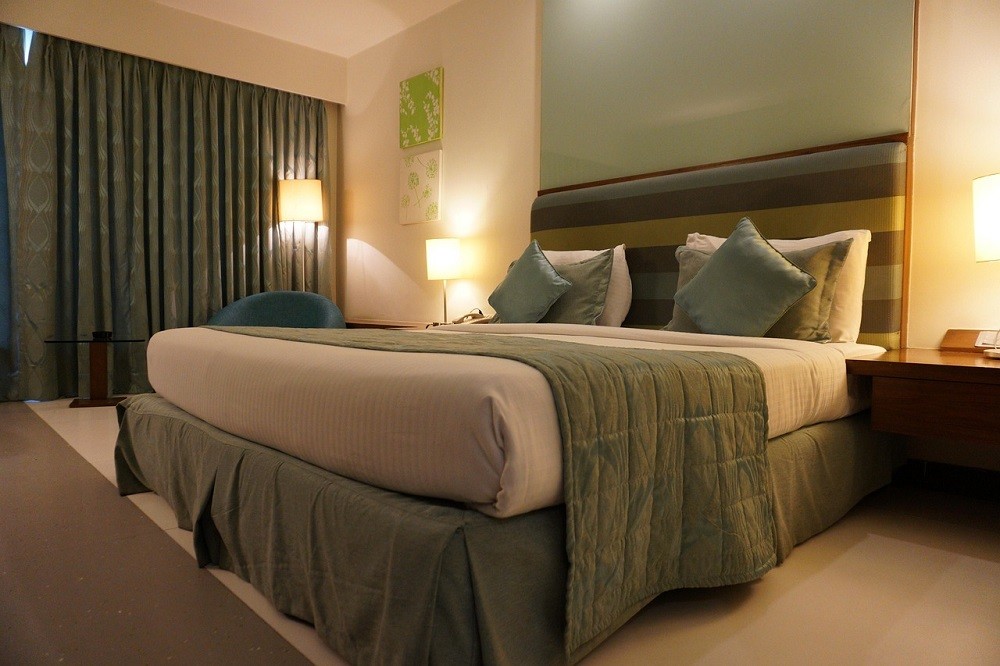
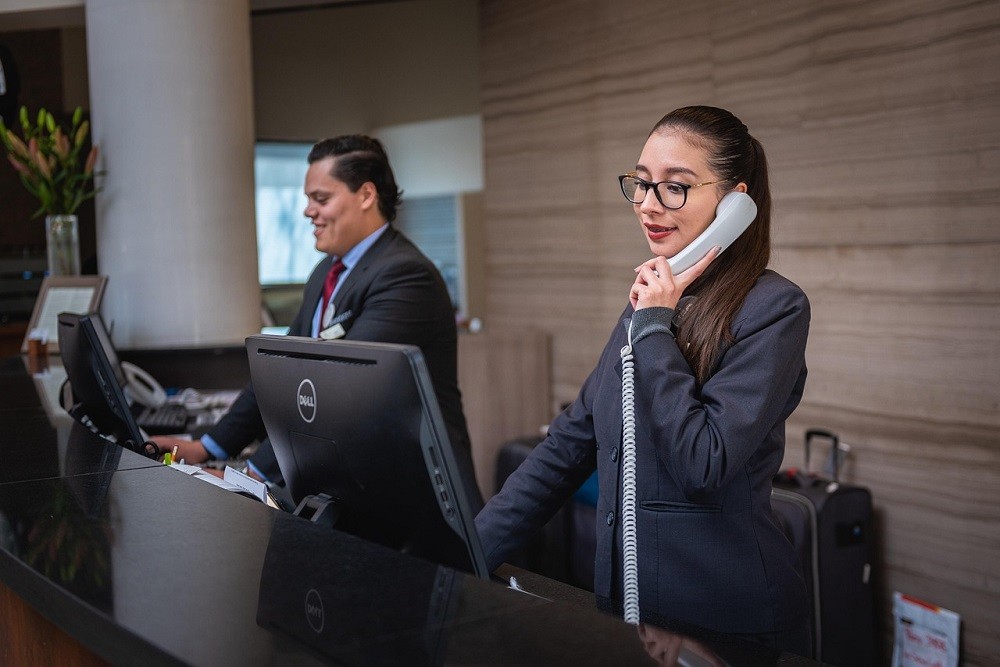
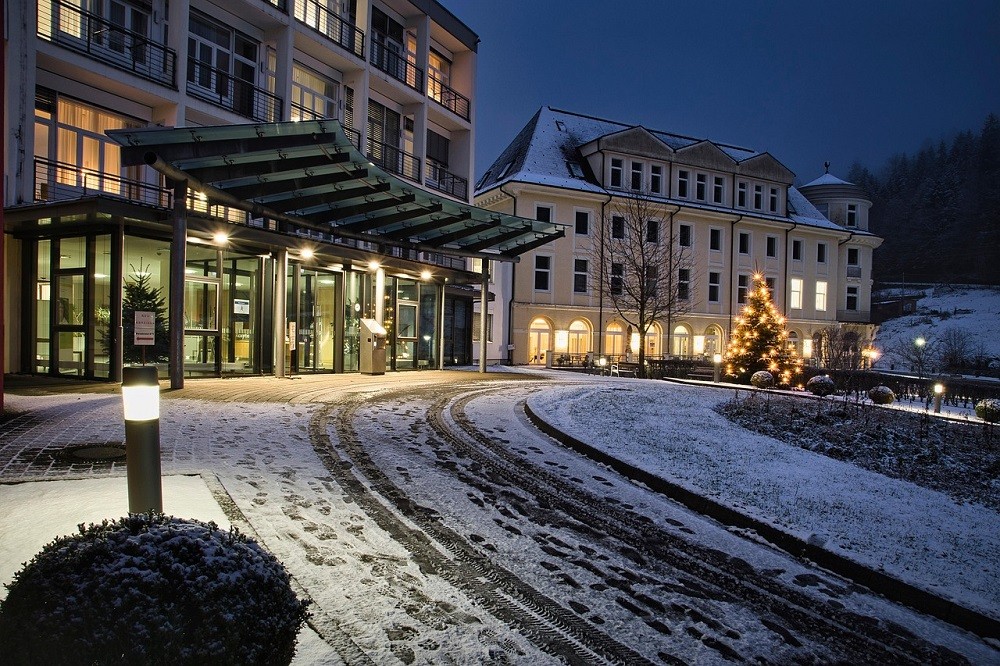
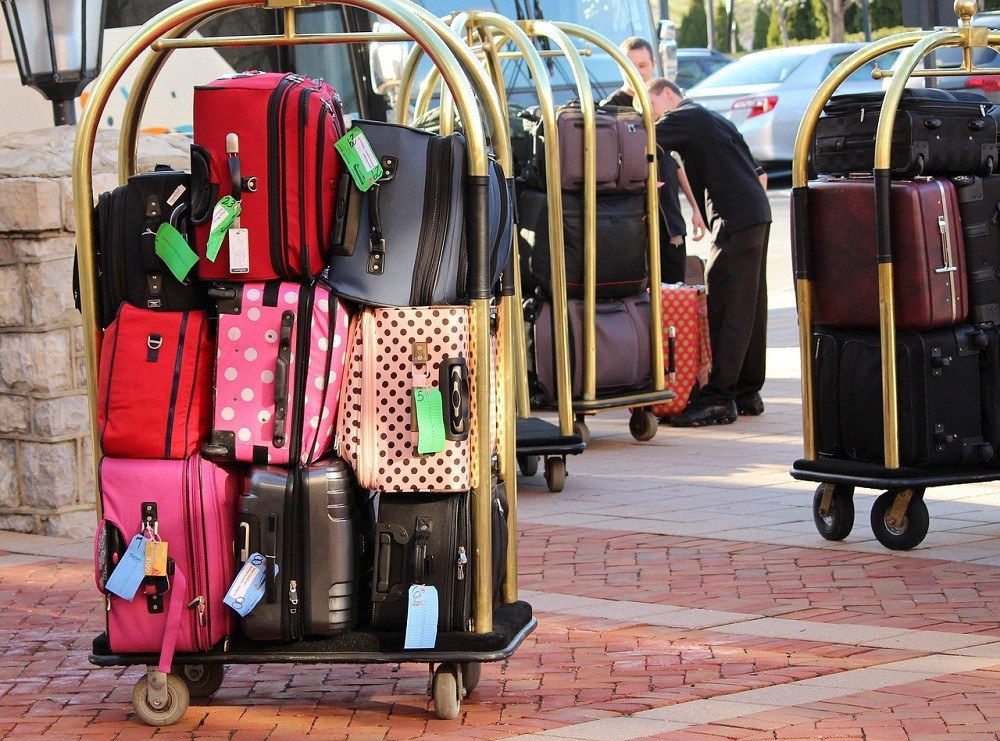
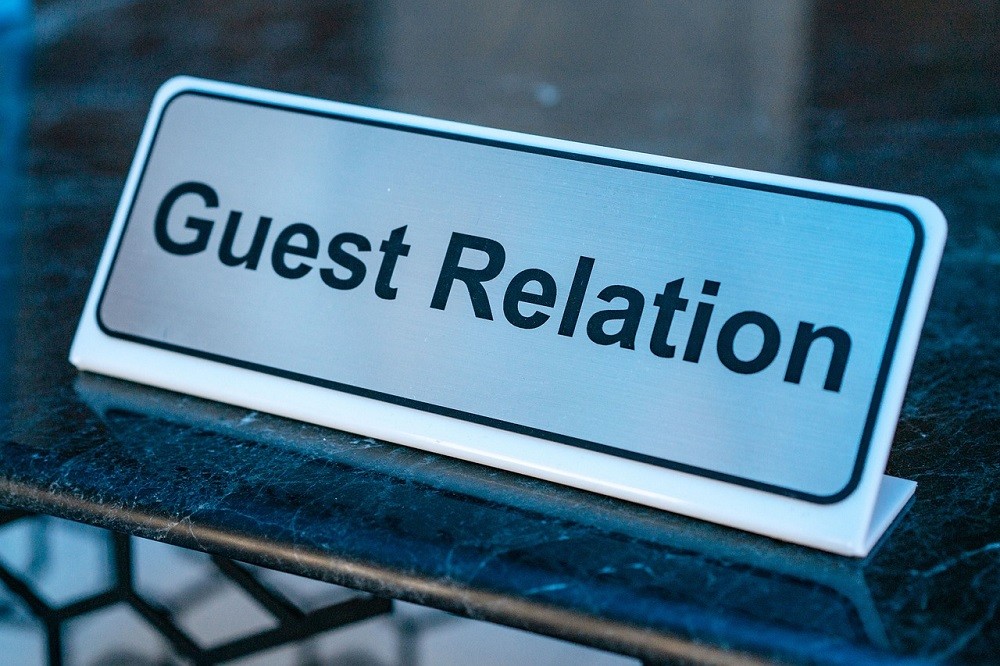
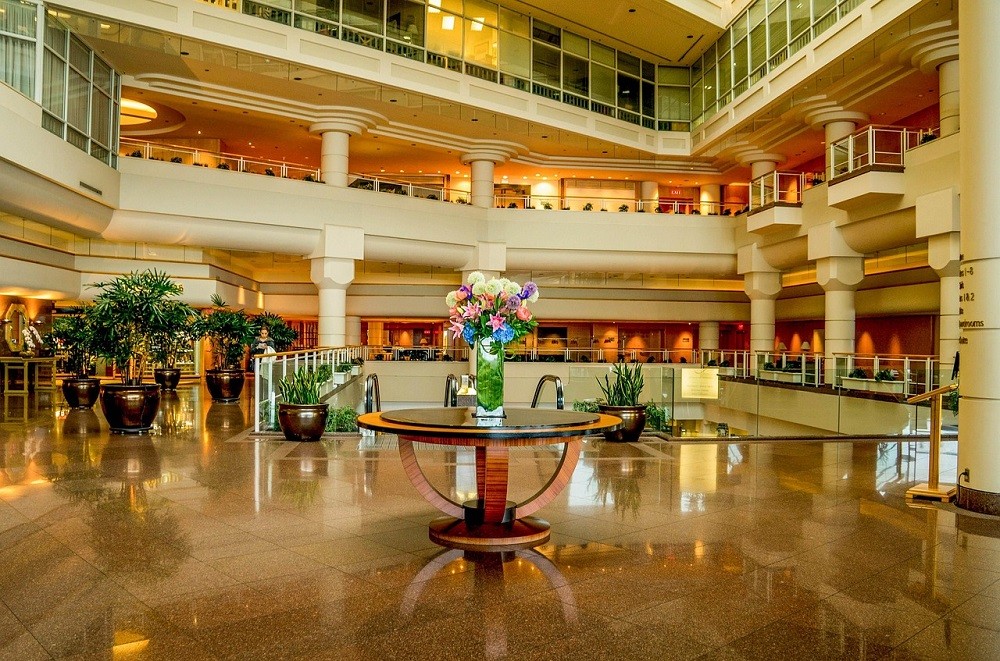
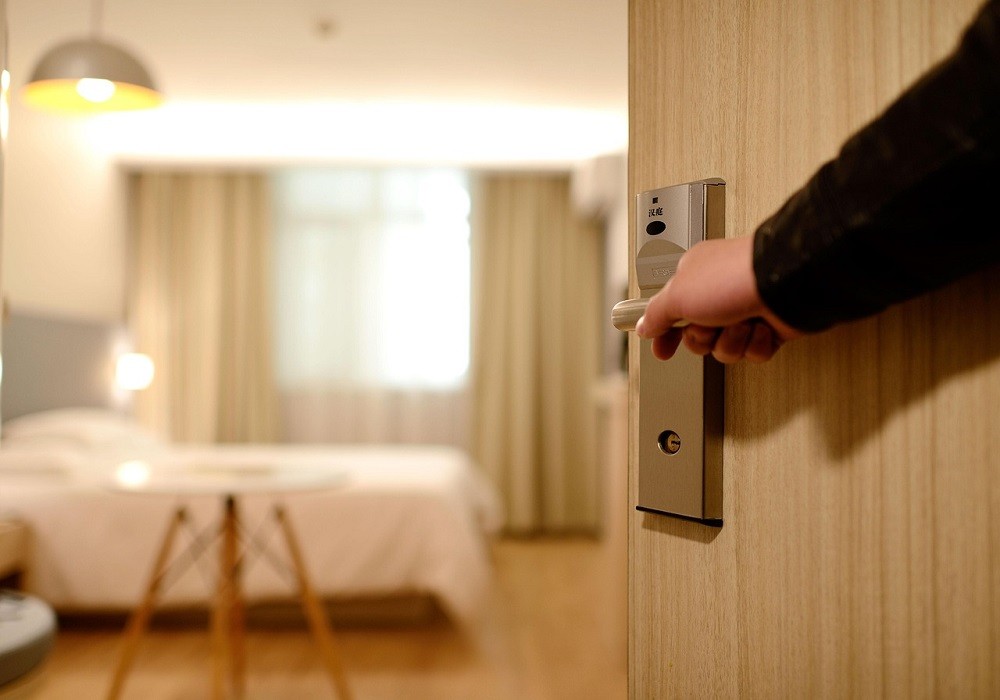
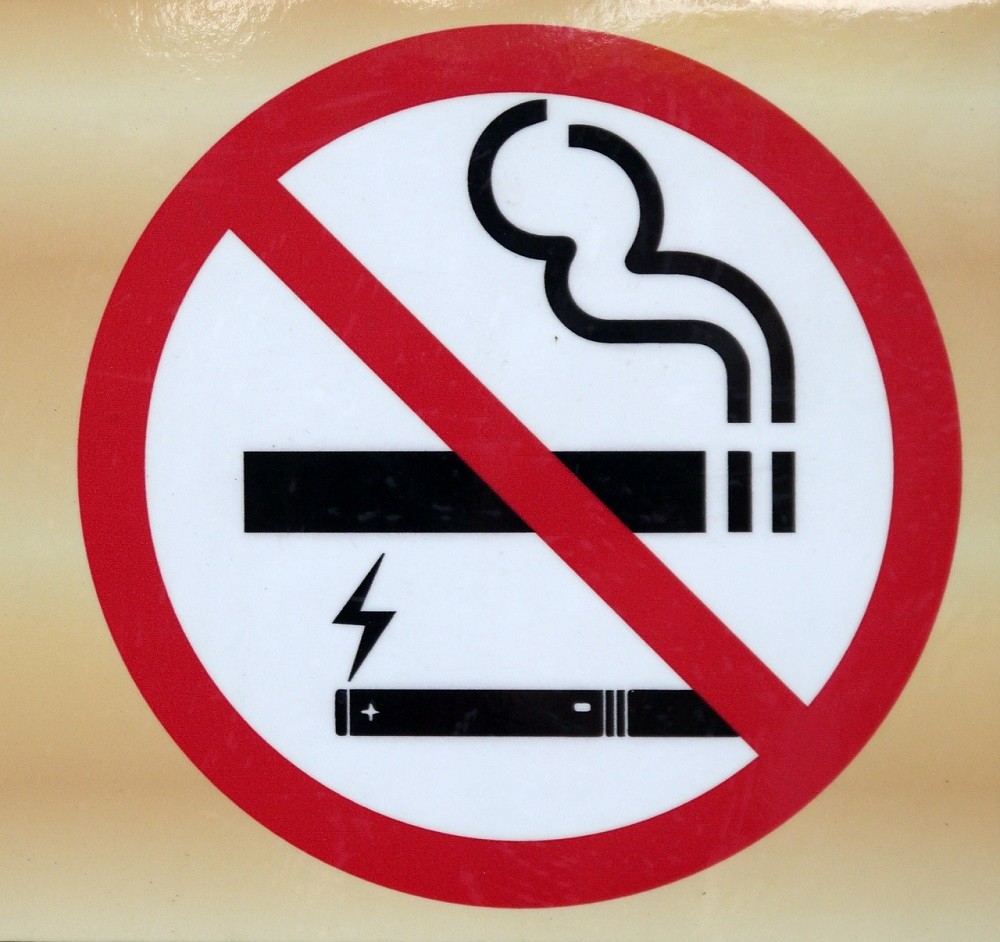
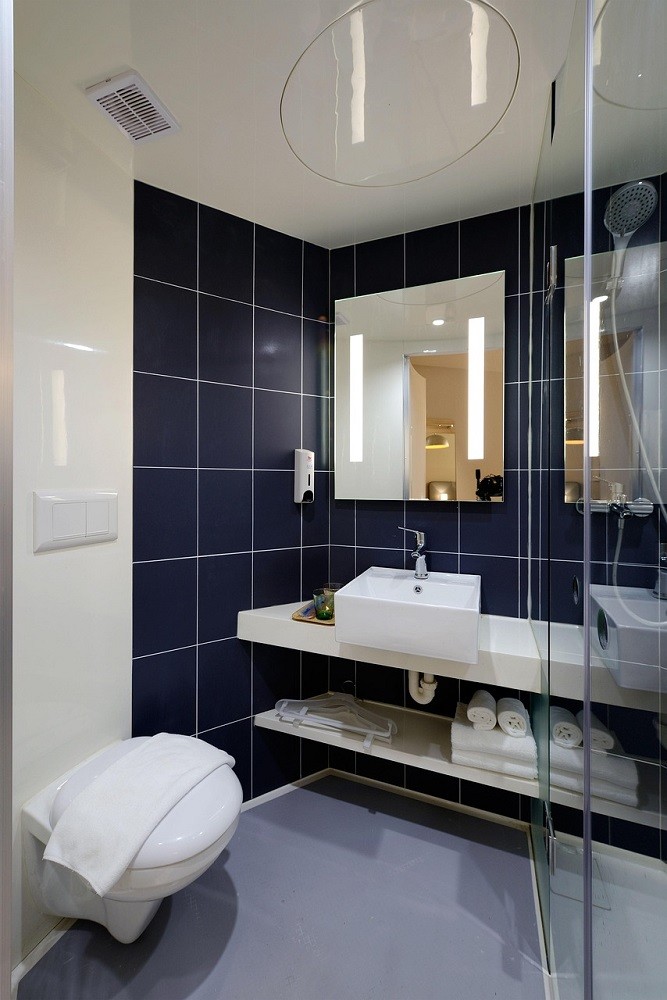
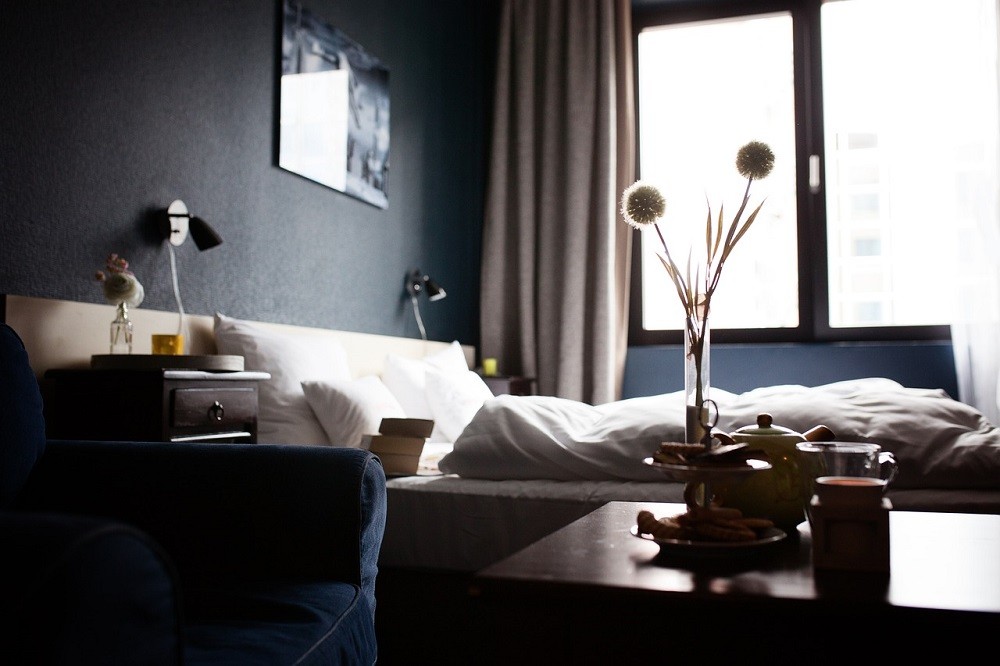
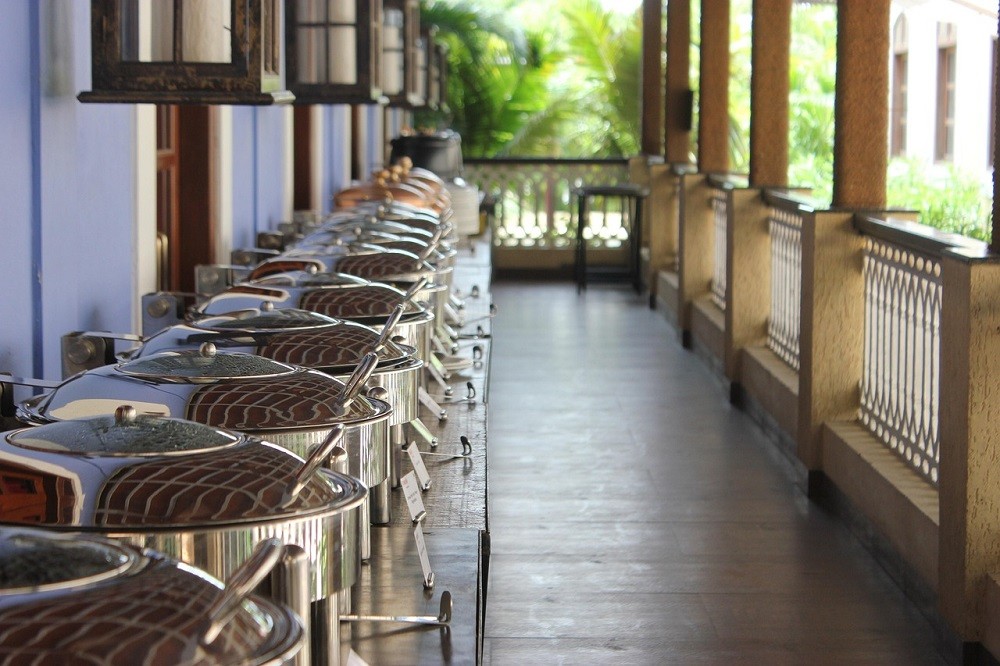
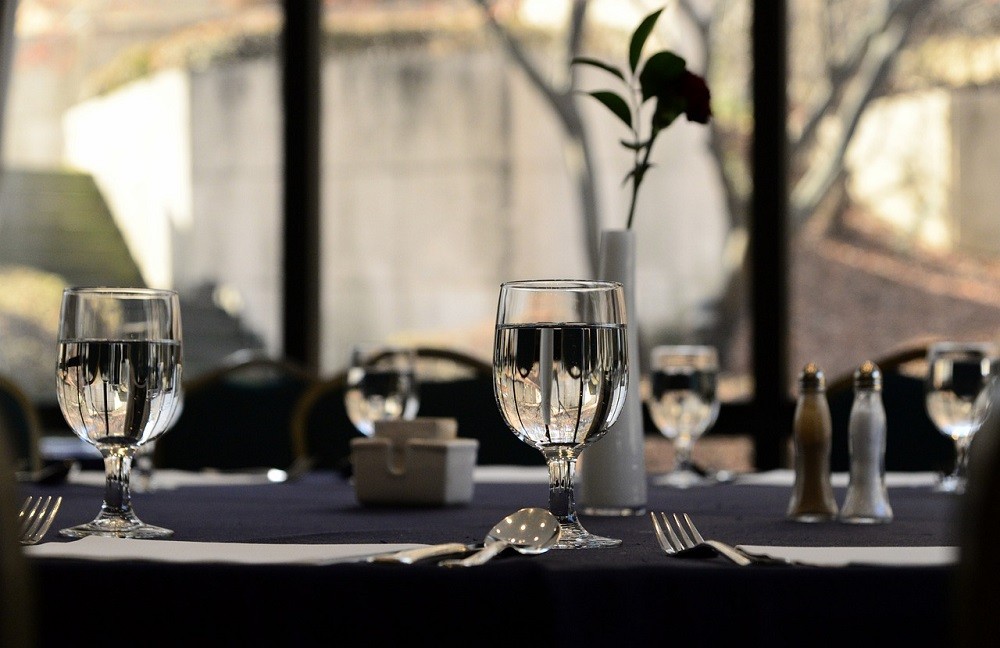
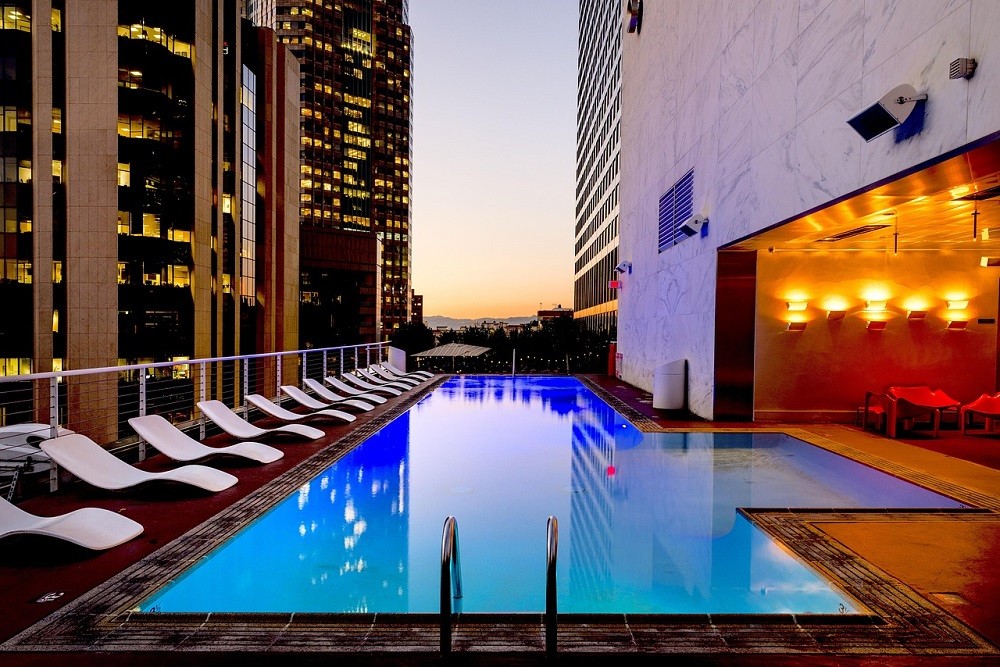


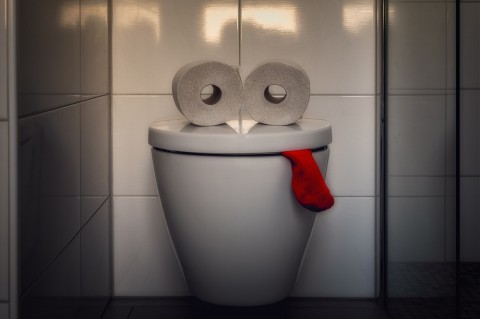
Comments